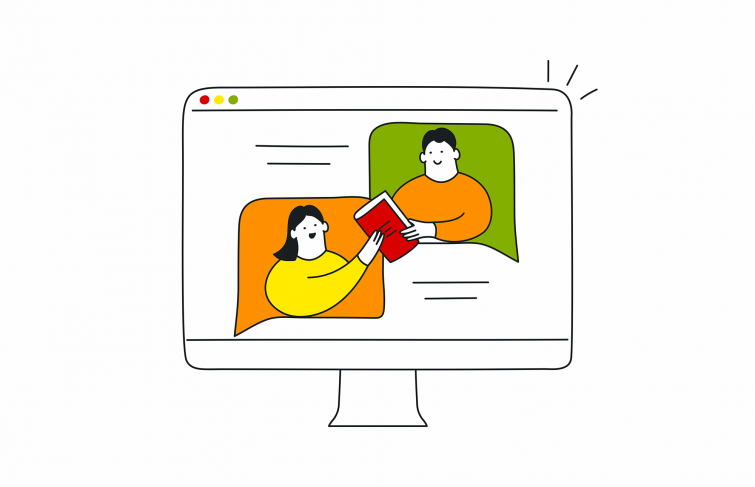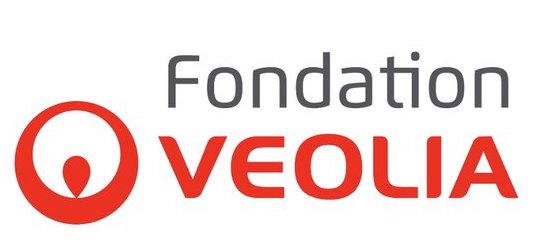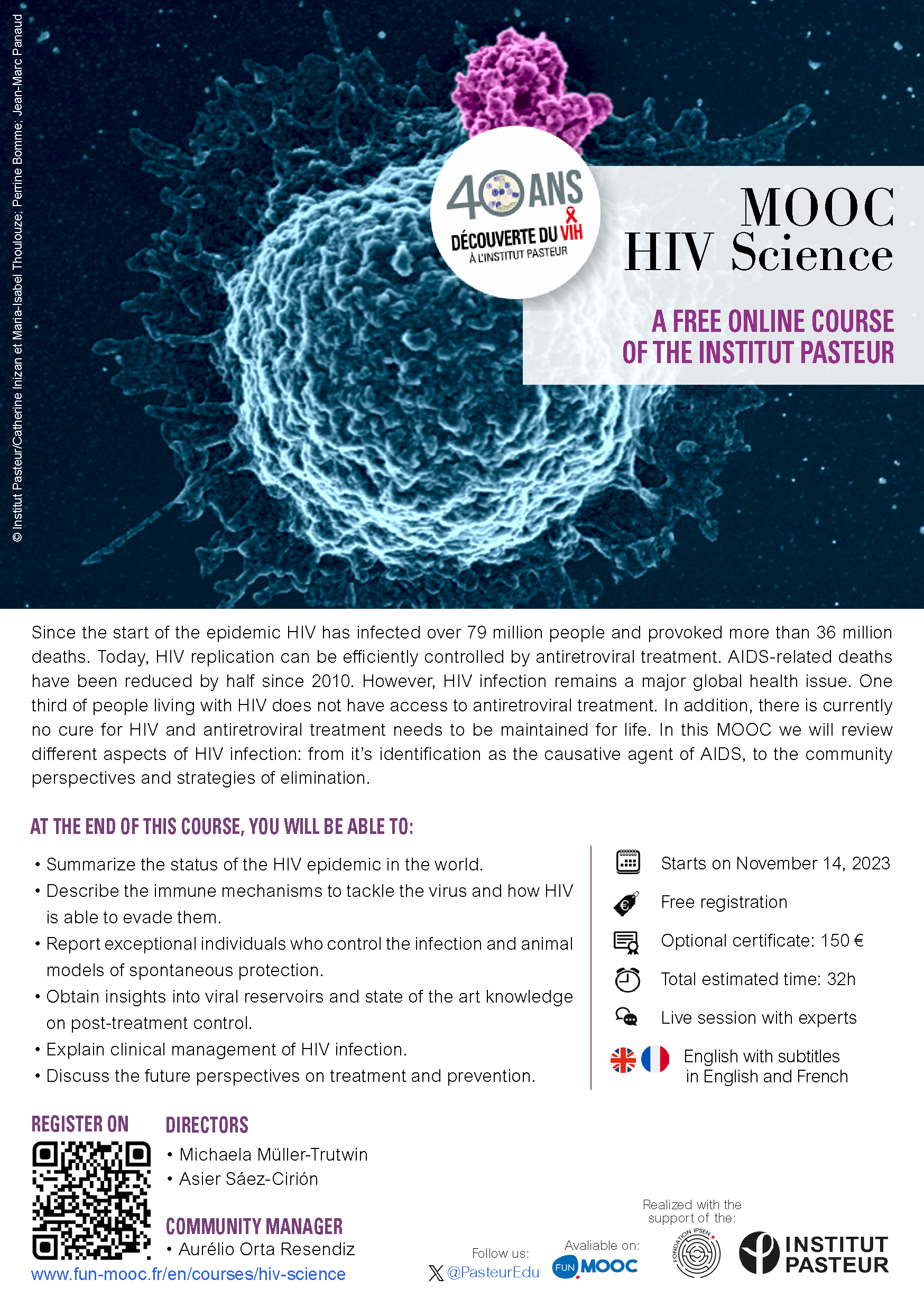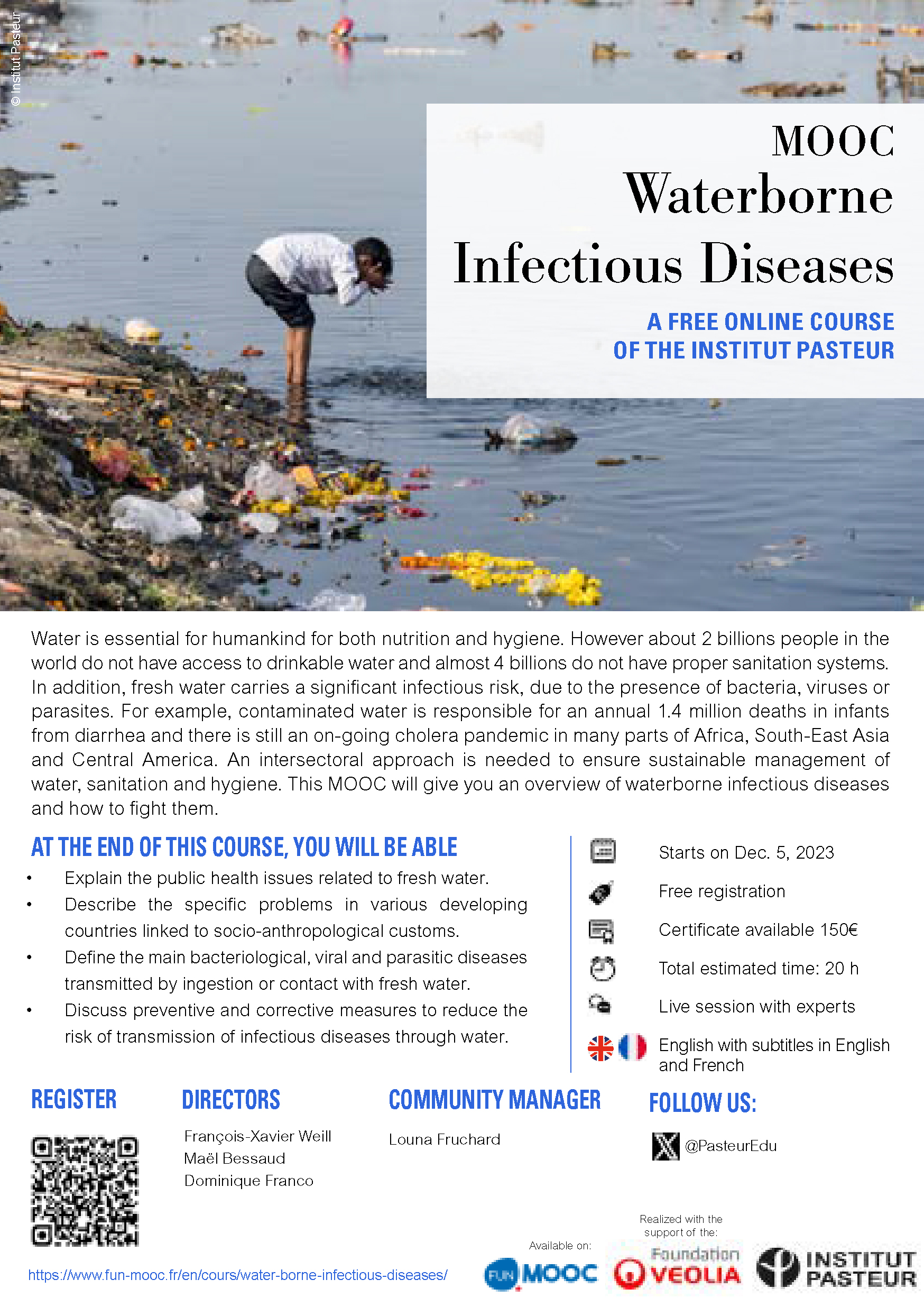
 education
education
MOOCs of the moment: "HIV Science" and "Waterborne Infectious Diseases"
- HIV Science MOOC also joins the commemoration of 40 years after the discovery of HIV at Institut Pasteur
The digital education office is pleased to invite you a new edition of the MOOC HIV Science, broadcasted from November 14, 2023 to January 31, 2024, led by Michaela Müller-Trutwin and Asier Sáez-Cirión.
Since the start of the epidemic HIV has infected over 79 million people and provoked more than 36 million deaths. Today, HIV replication can be efficiently controlled by antiretroviral treatment. AIDS-related deaths have been reduced by half since 2010. However, HIV infection remains a major g global health issue. One third of people living with HIV does not have access to antiretroviral treatment. In addition, there is currently no cure for HIV and antiretroviral treatment needs to be maintained for life. In this MOOC we will review different aspects of HIV infection: from its biological origin and its identification as the causative agent of AIDS, to the current epidemiology, advances in knowledge about viral persistence and host immune responses, vaccine candidates, strategies of eradication and community perspectives by international experts in the respective fields.
At the end of this course, you will be able to:
• Summarize the status of the HIV epidemic in the world.
• Describe the immune mechanisms to tackle the virus and how HIV is able to evade them.
• Report exceptional individuals who control the infection and animal models of spontaneous protection.
• Obtain insights into viral reservoirs and state of the art knowledge on post-treatment control.
• Explain clinical management of HIV infection.
• Discuss the future perspectives on treatment and prevention.
With the participation of:
Françoise Barré-Sinoussi, Ahidjo Ayouba, Michaela Muller-Trutwin, François Dabis, Guislaine Carcelain, Elisabeth Menu, Olivier Schwartz, Frank Kirchhoff, Stephane Emiliani, Nicolas Chomont, Anne-Sophie Beignon, Keith Reeves, Lydie Trautman, Hugo Mouquet, Nicolas Manel, Victor Appay, Karine Lacombe, Béatrice Jacquelin, Stephan Paul, Asier Saez-Cirion, Constance Delaugerre, Jade Ghosn, Nicolas Noel, Jean-Michel Molina, Jacqueline Capeau, Laurent Hocqueloux, Jean-Daniel Lelièvre, Maria José Buzon, John Frater, Florence Thune and Sarah Rowland-Jones.
- Register for the second edition of the MOOC Waterborne Infectious Diseases
The digital education office is pleased to invite you to sign up for the second edition of the Waterborne Infectious Diseases MOOC, broadcasted from December 5, 2023 to February 14, 2024, led by François-Xavier Weill, Maël Bessaud and Dominique Franco.
Water is of vital importance to humanity for nutrition and hygiene. However, more than 2 billion people, mainly in developing countries, do not have access to safe drinking water or adequate sanitation and are at risk of potentially severe infectious diseases linked to the presence in water from bacteria, viruses, or parasites. This explains, for example, the death by acute diarrhea of 1.4 million children each year and how, in the 21st century, a cholera pandemic persists in some continents. A cross-sectoral approach is needed to ensure sustainable management of water, sanitation and hygiene. This MOOC will give you an overview of water-related infectious diseases and how to combat them.
At the end of this course, you will be able to:
• Explain the public health problems associated with fresh water.
• Describe the problems specific to various developing countries linked to socio-anthropological customs.
• Define the main bacteriological, viral and parasitic diseases transmitted by ingestion or contact with fresh water.
• Discuss preventive and corrective measures to reduce the risk of transmission of infectious diseases through water.
Produced with the support of :

The Institut Pasteur's online diploma in infectious diseases (DNM2IP)
These two MOOCs are part of the 16 MOOCs selected for the Institut Pasteur's digital diploma in infectious diseases (DNM2IP), which was launched in 2019 and already has more than 1,600 learners registered on every continent.

